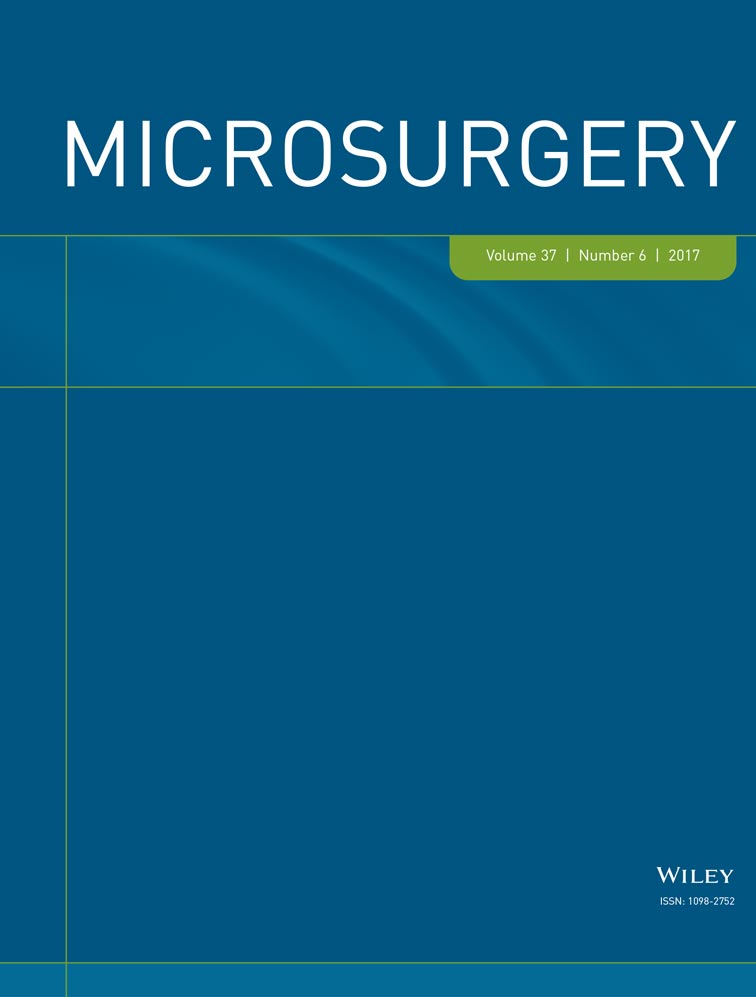Comparison of the outcomes of free jejunal flap reconstructions of pharyngoesophageal defects in hypopharyngeal cancer and corrosive injury patients
Abstract
Introduction
Free jejunal flap is one of the optimal choices for restoring upper digestive tract. The purpose of this study was to introduce the treatment strategies and to compare the outcomes of free jejunal flap for pharyngoesophageal reconstruction between hypopharyngeal cancer and chemical corrosive injured esophagus.
Methods
From 2001 to 2012, patients who had been received esophageal reconstruction by free jejunal flap for pharyngoesophageal defect were divided into squamous cell carcinoma (SCC) group and corrosive chemical injury (CCI) group. All data on outcomes and complications including relevant radiographic investigations were collected retrospectively.
Results
Sixteen patients were in SCC group and 9 patients in CCI group underwent free jejunal flap reconstruction. Two cases of flap failure were noted in SCC group, and no flap failure in CCI group—the total failure rate was 8% (2/25 patients). In SCC group, 5 of 16 patients (31.3%) developed fistula; however, no fistula in CCI group. One patient in SCC group and 3 patients in CCI group developed esophageal strictures. Other than early stricture (stricture <1 year) which reached significant difference, all of other complications were not statistically significant between two groups. The average follow-up time was 42 months.
Conclusions
Postoperative early stricture but lower fistula occurrence is expected in patients with corrosively injured esophagi. This helpful preliminary findings could not only early-check complication, but also better explanation and prepare were taken placed before operation.




